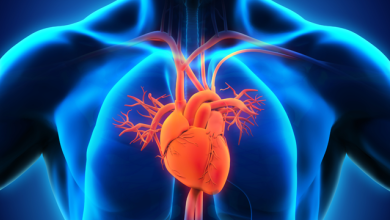Search results
Heart Failure 2024
Start date:
May 11, 2024
End date:
May 14, 2024
Event
Alcohol and Heart Failure
Author(s):
Debar Rasoul
,
Ashwin Ajay
,
Alend Abdullah
,
et al
Added:
3 months ago
Article
Hidden in Heart Failure
Author(s):
Douglas Ewan Cannie
,
Mohammed Majid Akhtar
,
Perry Elliott
Added:
3 years ago
Article
Author(s):
William T Abraham
Added:
3 years ago
Hyponatremia is the most common electrolytic abnormality in clinical practice and has a reported incidence of 15–30% in adults.1,2 It is particularly common in heart failure: the Organized Program to Initiate Life Saving Treatment in Patients Hospitalized for Heart Failure (OPTIMIZE-HF) registry recorded that 25.3% of 47,647 heart failure patients had hyponatremia on admission.3 In this registry,…
View more
Author(s):
Antoni Bayés-Genís
Added:
3 years ago
“Science can amuse and fascinate us all, but it is engineering that changes the world.”
– Isaac Asimov, 1920–1992
Technological breakthroughs, particularly advances in devices, are changing the course of heart failure (HF) management. Implantable devices have been used for decades to treat heart disease. The first pacemaker was implanted over 60 years ago (October 1958), and implantable…
View more
Author(s):
Dimitris Tousoulis
,
Evangelos Oikonomou
,
Gerasimos Siasos
,
et al
Added:
3 years ago
Diabetes mellitus (DM) is a group of diseases characterised by metabolic disturbances with increasing prevalence worldwide.1 Individuals with DM present several detrimental micro- and macrovascular complications such as retinopathy, nephropathy, neuropathy, atherosclerosis and coronary heart disease.2,3 Accordingly, efforts for early diagnosis and appropriate management are of ultimate importance…
View more
Author(s):
Veli-Pekka Harjola
Added:
3 years ago
Heart failure (HF) is a clinical syndrome characterised by inadequate systemic perfusion to meet the body's metabolic demands as a result of impaired cardiac pump function. It is one of the leading cardiovascular health problems in Europe, and its incidence, particularly in the elderly, continues to increase despite an intensive effort to increase education and delivery of healthcare to affected…
View more
Author(s):
Ewa Piotrowicz
,
Ryszard Piotrowicz
Added:
3 years ago
Telemedicine (TM) (see Table 1) finds its application most commonly in chronic heart failure (HF).1–3 TM can be useful during exercise training (ET) as a tool to control stability of the clinical status of patients and to supervise training sessions. These goals can be achieved by monitoring clinical symptoms (dyspnoea, fatigue, oedema, chest pain, palpitations, etc.) and monitoring parameters …
View more
Author(s):
Simon G Pearse
,
Martin R Cowie
,
Rakesh Sharma
,
et al
Added:
3 years ago
Despite advances in therapy, heart failure (HF) continues to be a leading cause of hospitalisation in those over 65.1 Around 2 % of people in Europe live with HF and as many as 10 % of those over 75 years are affected.2 Prognosis continues to be poor, with approximately half of patients dying within 5 years of first hospitalisation,3 a more severe prognosis than many malignancies.4
Sleep…
View more
Author(s):
Gilles W De Keulenaer
,
Dirk L Brutsaert
Added:
3 years ago
Definitions and Historical Considerations – The Misleading Role of Ejection Fraction
Chronic heart failure (CHF) is a heterogeneous syndrome with a complex pathophysiology. Although many different definitions for heart failure exist, we prefer the following: “a clinical syndrome characterised by symptoms and signs of increased tissue/organ water and decreased tissue/organ perfusion. Regardless…
View more














